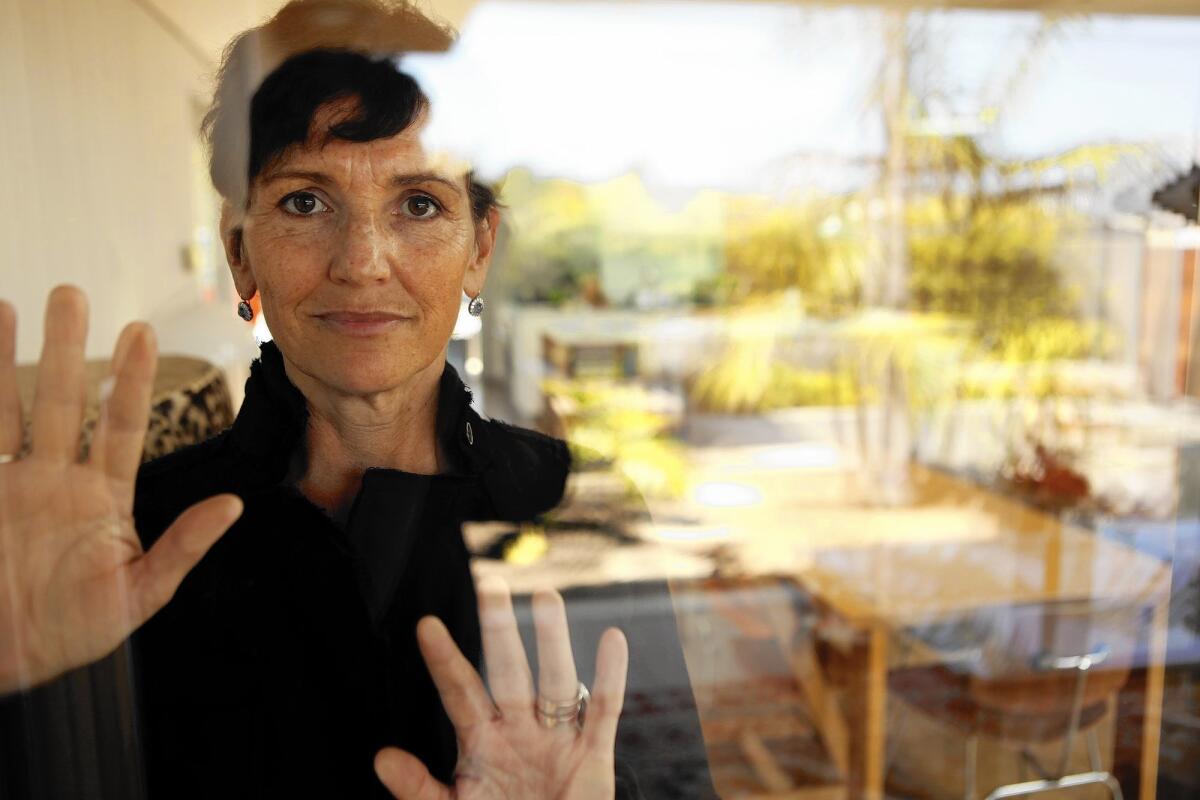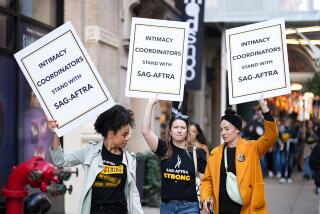The Hollywood gender discrimination investigation is on: EEOC contacts women directors

- Share via
The Equal Employment Opportunity Commission has begun contacting female directors to investigate gender discrimination in Hollywood.
In the EEOC letter sent out Thursday, a copy of which was obtained by The Times, the agency asks to schedule interviews with the women, “so that we may learn more about the gender-related issues which you are facing in both the film and television industries.”
In interviews with several of the women who have received letters from the government agency — which is following up on a request the American Civil Liberties Union made in May — the directors said they were grateful that longtime complaints about gender discrimination in Hollywood are being taken seriously.
SIGN UP for the free Indie Focus movies newsletter >>
“It feels historic,” said Lori Precious, a director of commercials and music videos who received a letter from the EEOC. “We were all hoping it would go this far. I’m so tired of hearing, ‘There aren’t qualified women.’ There are qualified women to do every directing job in Hollywood.”
That was a sentiment echoed by other women directors who had not yet been contacted by the EEOC but who spoke with The Times about the investigation.
“I’m so glad we’re finally attacking this,” said Catherine Hardwicke, who directed the 2008 box-office juggernaut “Twilight” and whose next movie, “Miss You Already,” opens in November. Hardwicke was not one of the women who received the EEOC’s letter. “When I started out I was so naive I didn’t realize what I was up against.”
Maria Giese, whose initial overture to the ACLU incited its investigation, and Melanie Wagor, who is a former co-chair of the Directors Guild of America’s Women’s Steering Committee, also confirmed that they had received letters. They said they planned to schedule interviews with the agency as early as next week.
A spokesman for the EEOC declined to confirm whether an investigation is underway, citing federal law.
“Information on specific charges are made public only when the EEOC files a lawsuit, which is typically a last resort,” EEOC spokesman Joseph Olivares said in an email. “We also encourage the industry to publicly address the serious issues raised by the ACLU and to take proactive steps to address these issues.”
If the EEOC ultimately determines that a pattern of discrimination exists, it could take legal action against the studios or seek to mediate a solution aimed at boosting the ranks of female directors. But the complex process by which films get greenlighted and directors selected could make a legal solution tricky, due to the large number of parties involved in hiring, including agents, managers, producers, studio executives and the DGA.
In May, the ACLU contacted multiple government agencies, citing a USC study that found that only 1.9% of directors of the top-grossing 100 films of 2013 and 2014 were women. The group also cited a DGA report that found women represented just 14% of television directors in 2013 and 2014.
The DGA did not respond to a request for comment on the EEOC investigation.
This isn’t the first time government agencies have gotten involved in Hollywood hiring practices.
In the 1960s, the EEOC and the Justice Department found evidence of employment discrimination in Hollywood and reached a settlement with the Assn. of Motion Picture and Television Producers and multiple unions that called for increased recruitment of minorities, but not women specifically.
In 1983, the DGA sued Warner Bros. and Columbia Pictures on behalf of its female and minority members; a judge dismissed the suit in 1985 after the studios argued that the DGA contract gives directors the right to select their own assistants, limiting the studios’ liability for discrimination.
Many of the women The Times interviewed said they hoped an increased climate of openness would help push the issue forward.
“Recently, women directors have gained tremendous momentum because grass-roots efforts have finally demonstrated that it is safe to speak out,” Giese said. “The more women that speak out, the more effective the EEOC can be.”
Follow me on Twitter: @ThatRebecca
MORE:
The embarrassing number that got Illeana Douglas and TCM to showcase ‘Trailblazing Women’ directors
‘Intern’ director Nancy Meyers reflects on changes for working women and in Hollywood
New movie fund Gamechanger Films is formed to back women directors
More to Read
Only good movies
Get the Indie Focus newsletter, Mark Olsen's weekly guide to the world of cinema.
You may occasionally receive promotional content from the Los Angeles Times.











